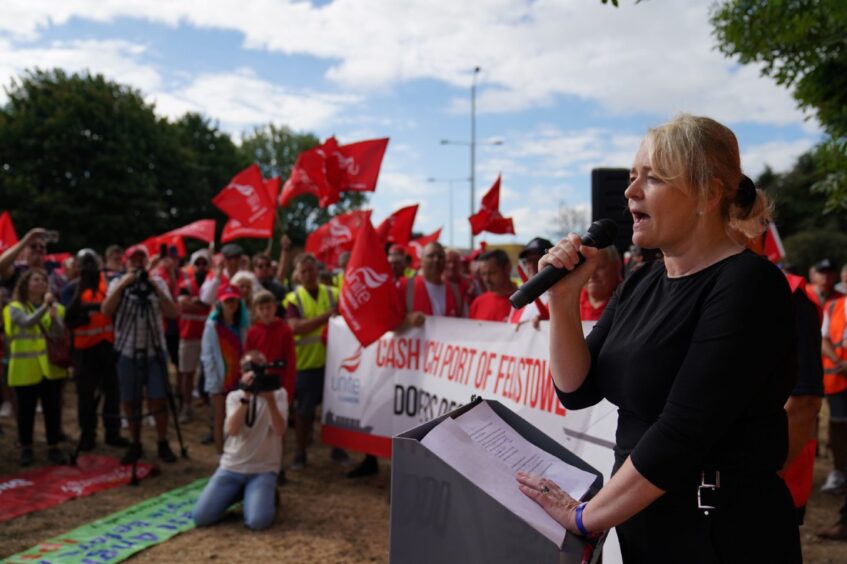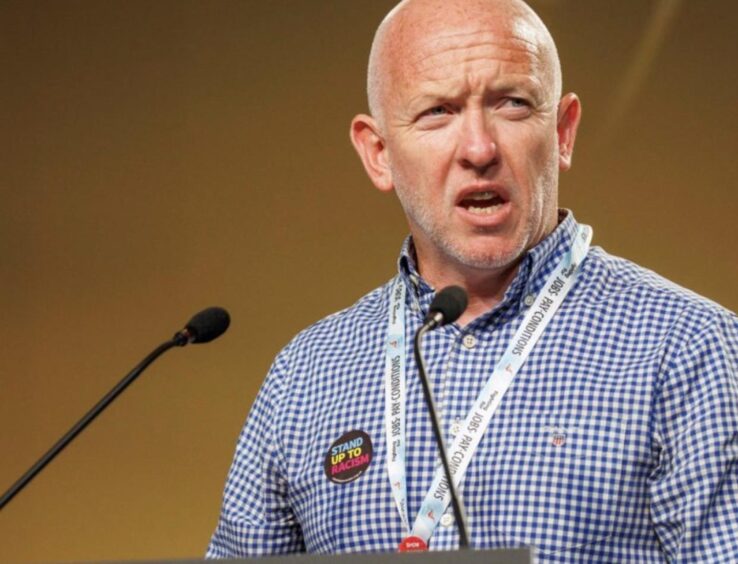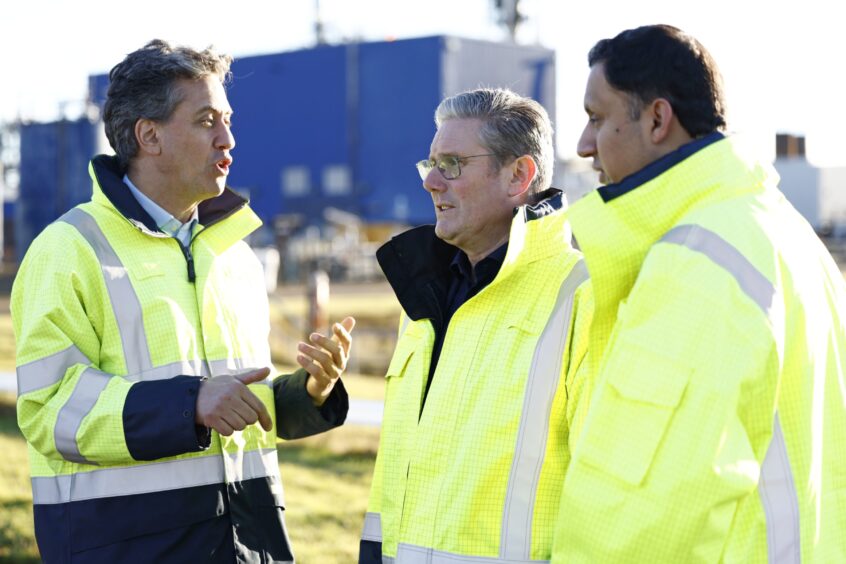
Unite the union is working on plans for a major engagement with energy workers next year, aimed at charting a course for politicians and the union around the future of the sector.
Speaking with Energy Voice, Unite executive council member Cliff Bowen – whose role covers the chemicals, pharmaceuticals, process, textiles and glass sectors – described the “massive” scope of the campaign.
“It’s one of the biggest, probably the biggest campaign Unite has ever launched.”
Beginning in early 2024, the union plans to host a series of meetings starting in the northeast and heading down the east coast across Scotland and the UK to gauge member and political sentiment on the future of energy policy.
He likens the action to the Save our Steel campaign, in which workers have called on elected officials to invest and back British steelmaking.
It comes as the union and its members grapple with uncertainty over the future of the oil and gas sector, and a renewables industry that is – so far – still to deliver on much of the promises of a just transition.
“Everybody wants to promise you green jobs. The phrase just rolls off people’s tongues. But what does that mean?
“You’re going to need [oil and gas] for another couple of decades, so surely you’re better to have UK oil and gas. And this is the bit you get into around licensing and exploration, and you can see the stuff that’s happening in politics at the moment.
“We’re going to be saying to people: ‘What’s your view on this?’ And then voters can make up their own mind.”
The format for these engagements remains to be determined, but he expects a mixture of in-person discussions as well as billboards, poster campaigns and a social media push.
As Mr Bowen sees it, MPs stance on the future of the North Sea – particularly on continued exploration – will be a core component of these discussions.
“We want to come in and we want to say local MPs: ‘What’s your stance around exploration, what are your views on oil and gas, and where is this going? If we’re going to close down these workplaces, what does that look like?’
“And when you start getting into that, the truth is there’s not a lot of plans there. Very little industrial strategy, very little strategy around manufacturing in this country – but working class people in communities require these jobs to survive.”
“For us the time for politicking on this stuff is done. We really are going to start putting people’s feet to the fire on this because unless you’re going to support us, why would we support you?”
“People have hopes and dreams, you know. We’re custodians of these roles. Our sector has plans to decarbonise our workplaces, underpinned by science and we want to hand these decarbonised jobs over to kids who live in our towns.
“We’re not going to allow our members and our communities to become coal miners of the day.”
Just transition and Grangemouth
The nature of the impact of this transition on workers is brought into sharp focus at Grangemouth, where Petroineos announced preparatory plans last week to close its crude refining unit and instead create a fuels import terminal – potentially impacting hundreds of jobs.
Mr Bowen noted the plans had just emerged and that much was still to be determined, but that Unite would work with the UK and Scottish governments to understand the implications – and whether other options could be pursued, including government investment or a possible biofuel refinery.
“We’ve got meetings set up with them in the coming weeks to see where we are on that. Obviously you’ve got a lot of people in the community worried,” he noted.
Labour and exploration
Meanwhile, there remains some further alignment to be had between Unite and the Labour Party. It follows plans mooted by leader Keir Starmer earlier this year to ban new oil and gas licences if the party won power, which met with condemnation from the northeast in particular.
During a visit to Aberdeen last week Labour pledged that key North Sea industries such as carbon capture and storage would be eligible for a proposed £2.5 billion British Jobs Bonus, while shadow climate change minister Ed Miliband said the region is “absolutely a priority” for the party.
Discussions with the party and the union on its exact energy policy around oil and gas remains “fluid”, Mr Bowen noted.
“There are some opposing views but we’re aligned on most things. I think exploration is probably the bit where you can see it and the National Policy Forum is saying that they’re not for granting new licences; we’re saying let’s have a conversation about that.”
‘Where, when and how’
Despite his scepticism around green jobs, he acknowledges the “massive opportunities” for UK workers and members in areas like carbon capture and storage and hydrogen, particularly given the transferrable skills of process engineering, and in disciplines like welding and scaffolding.
Yet in wind – where a dearth of UK-made components and jobs remains a sore point – he is less enthusiastic.
“Look at Siemens in Germany getting bailed out, look at the last [CfD auction] round in this country. But remember, these are the people that at the same time are telling our members they should shut oil and gas down and get a job in wind.”
Pay could also be a sticking point. Mr Bowen’s colleague John Boland recently told a Scottish government inquiry how an electrical technician in oil and gas could see a pay cut of as much as £20,000 if moving to the same role in offshore wind.
However, even if the journey remains under discussion, Mr Bowen and Unite are clear on the destination – and hopes the upcoming campaign will play a crucial role in getting in there.
“A green job isn’t delivering pizza on an electric bike. That’s not what my members want as a job.
“I want long-term manufacturing, decarbonised jobs in a net zero environment. That’s what we’re looking for: hydrogen, carbon capture storage, all that.
“Don’t give me promises of green jobs if you can’t tell me what qualifications I need, where will the jobs be based, when can I apply for them and how much the pay is.”
Recommended for you

 © Supplied by Unite/Cliff Bowen
© Supplied by Unite/Cliff Bowen © PA
© PA